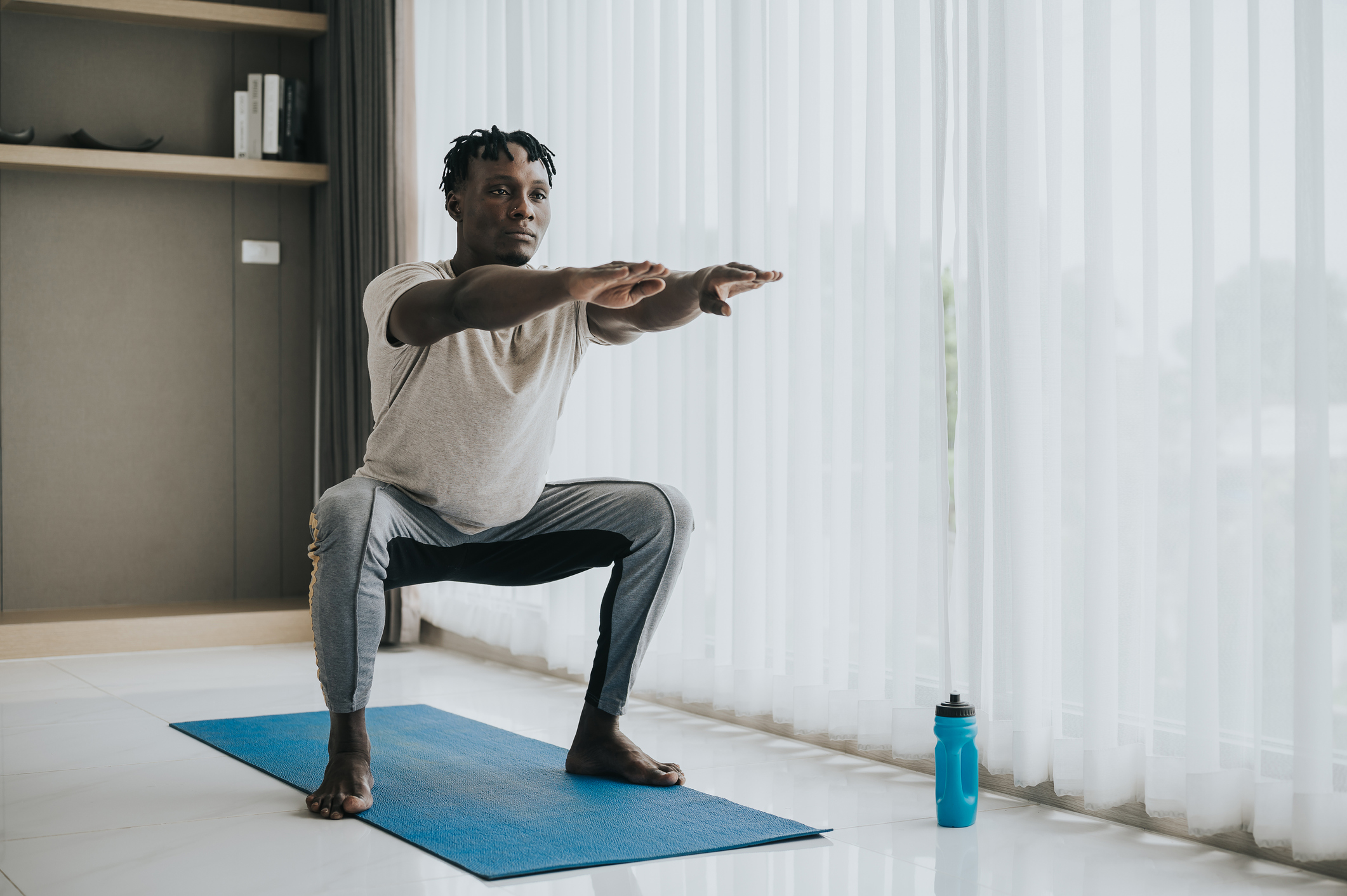
Squats are great for building lower-body strength. The simple move targets a bunch of muscles, but you usually feel it primarily in your quads (front thigh muscles) and glutes (butt muscles).
Tweaking your squat form can have an impact on all kinds of things, including where you feel the move and the type of strength you build. For example, jump squats can help you build explosive strength, while doing a squat hold will improve your muscular endurance.
It's worth learning how to squat properly, before you start playing around with variations. According to personal trainer Anya Russell: "It is essential that you can perform the exercise correctly before we add any load [or do a squat variation] to avoid injury."
Once you've mastered the move, here are some static, dynamic and alternative stances for building your lower body, as recommended by expert trainers.
Best squat variations for leg strength
Sumo squat
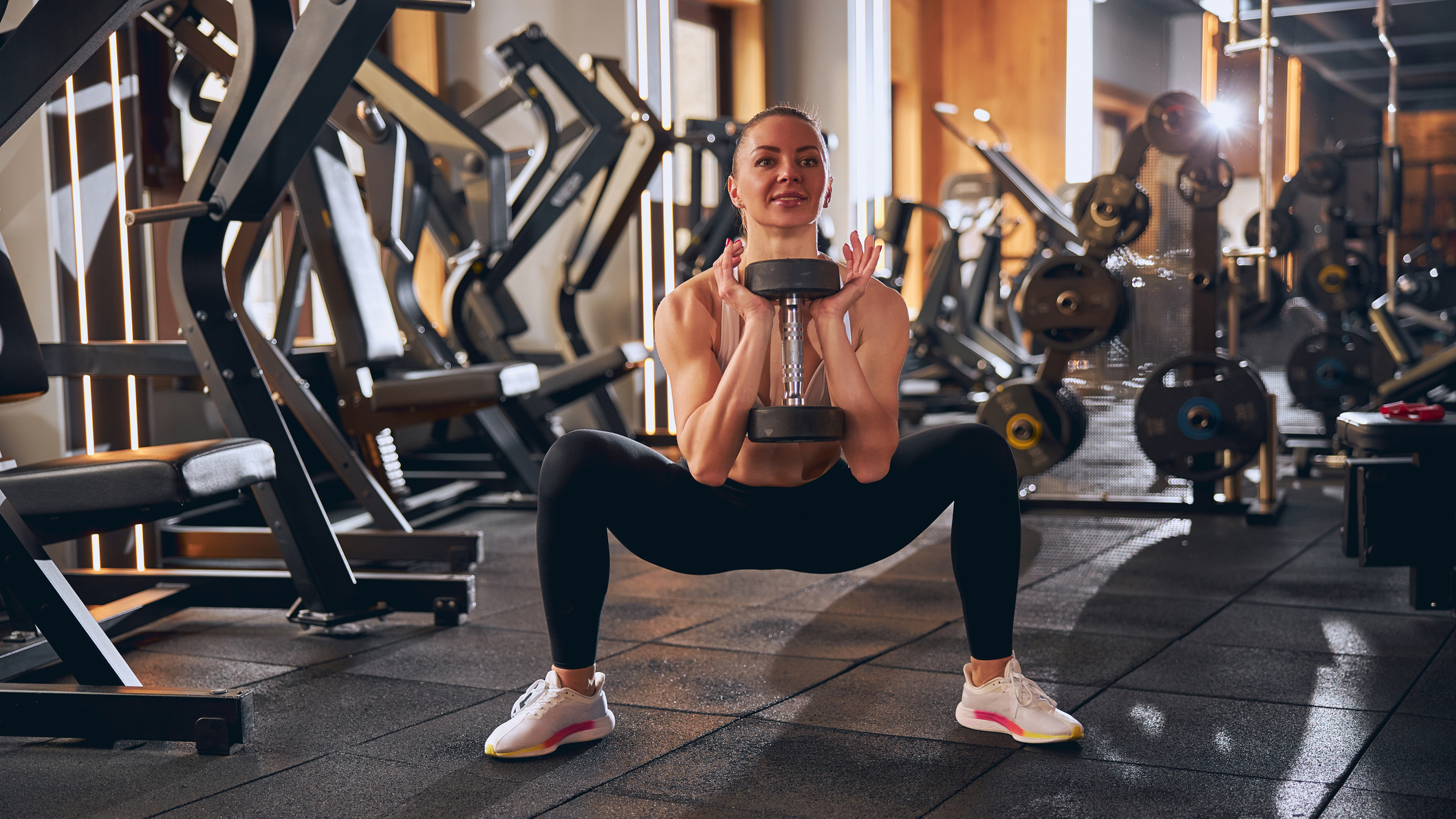
- Start in a wide-legged stance, with your feet turned outwards. You can clasp your hands in front of you or hold a weight.
- Bend your knees and lower your body, until your thighs are parallel with the ground (or lower).
- Push through your heels to return to the standing position.
Barre and Pilates specialist Natalie Rose Edwards says this wide-legged squat variation will work your gluteus medius and maximus muscles (the larger glute muscles) along with your inner thighs.
It differs from other types of squats because you need a wider stance and a slight turnout of your hips. Add a barbell and plates or kettlebell to increase the intensity.
Squat hold
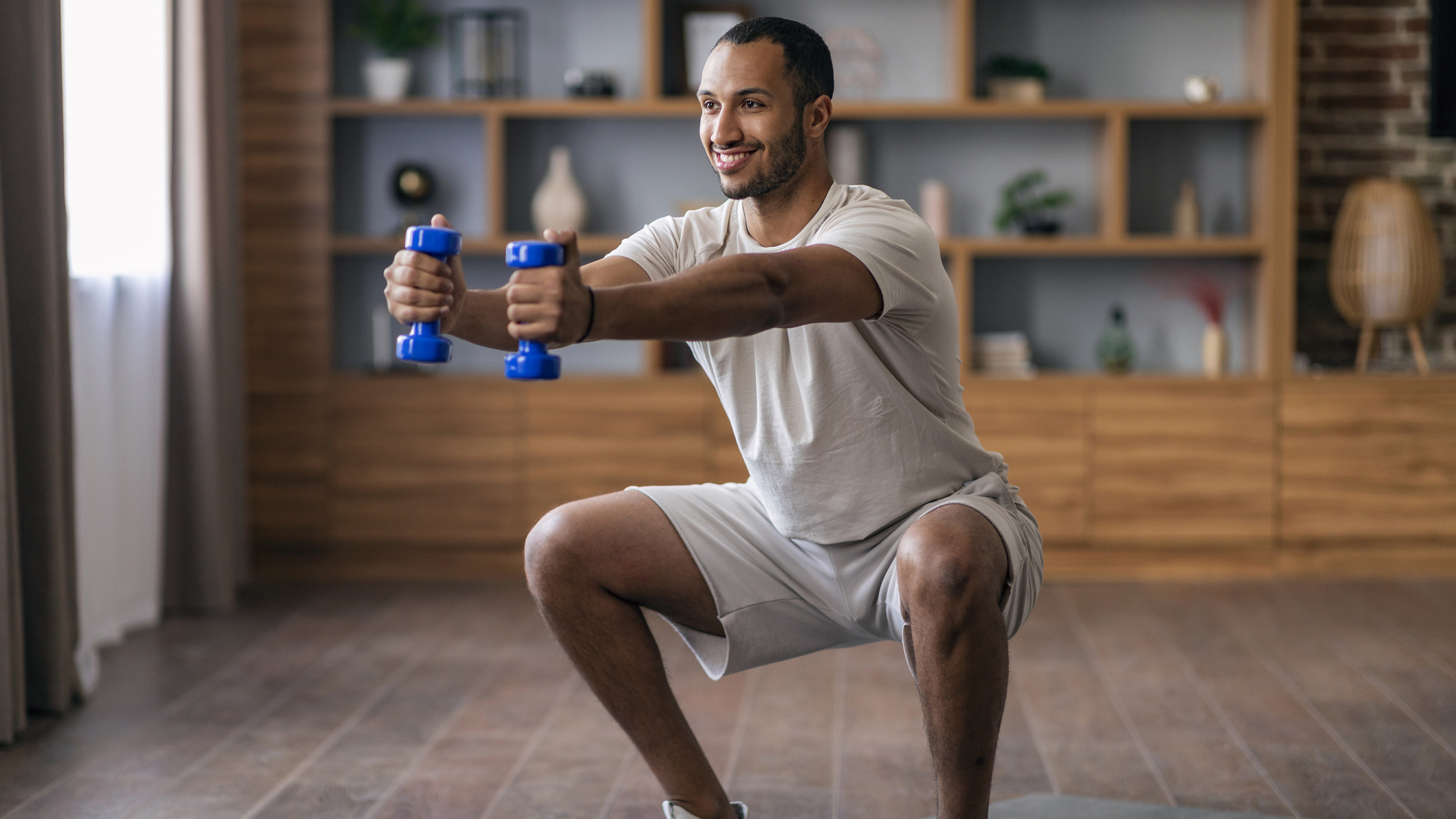
- Start with your feet roughly hip-width apart. You can hold your arms straight out in front of you or clasp them to your chest.
- Bend your knees and push your hips back to sink down into a squat. Stop when your thighs are parallel (or lower) to the ground.
- Hold this position. If you're a beginner, you may only be able to manage 20 seconds, but aim for 40-60 seconds. Try to see what your maximum time is and aim to beat it each week.
The squat hold will build quad and glute strength and increase your core stability. For additional intensity, hold a dumbbell or medicine ball close to your chest.
Start your week with achievable workout ideas, health tips and wellbeing advice in your inbox.
Pistol squat or single leg squat
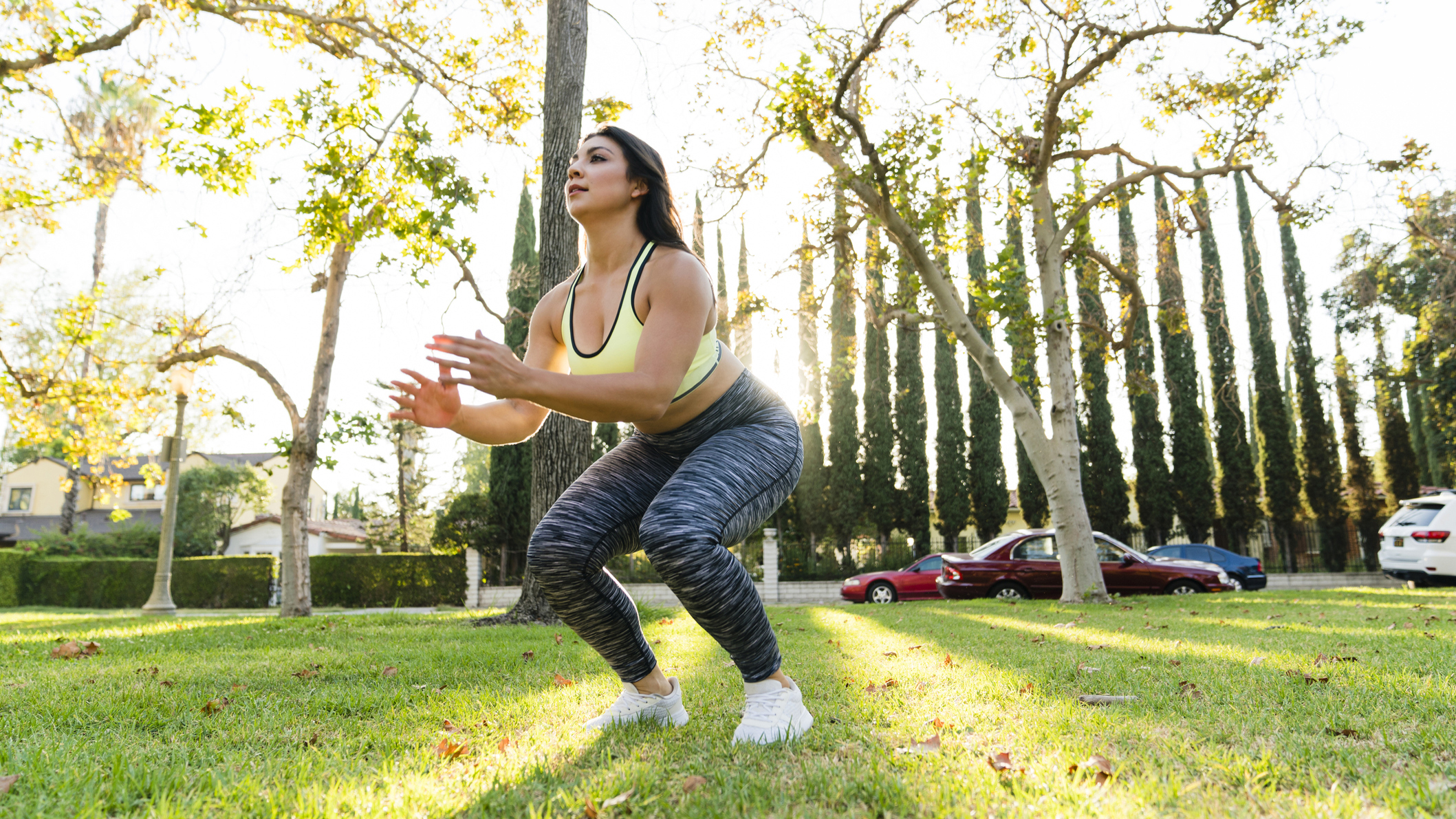
- Start the move by doing a normal squat; stand with feet shoulder or hip-width apart, bend your knees and sink down until your thighs are parallel with the floor.
- Push through your heels, extend your legs and jump explosively into the air.
- Sink back down into a squat and start the sequence again.
This is great for strengthening your glutes, hips, quads and hamstrings while also raising your heart rate, bringing some cardio perks.
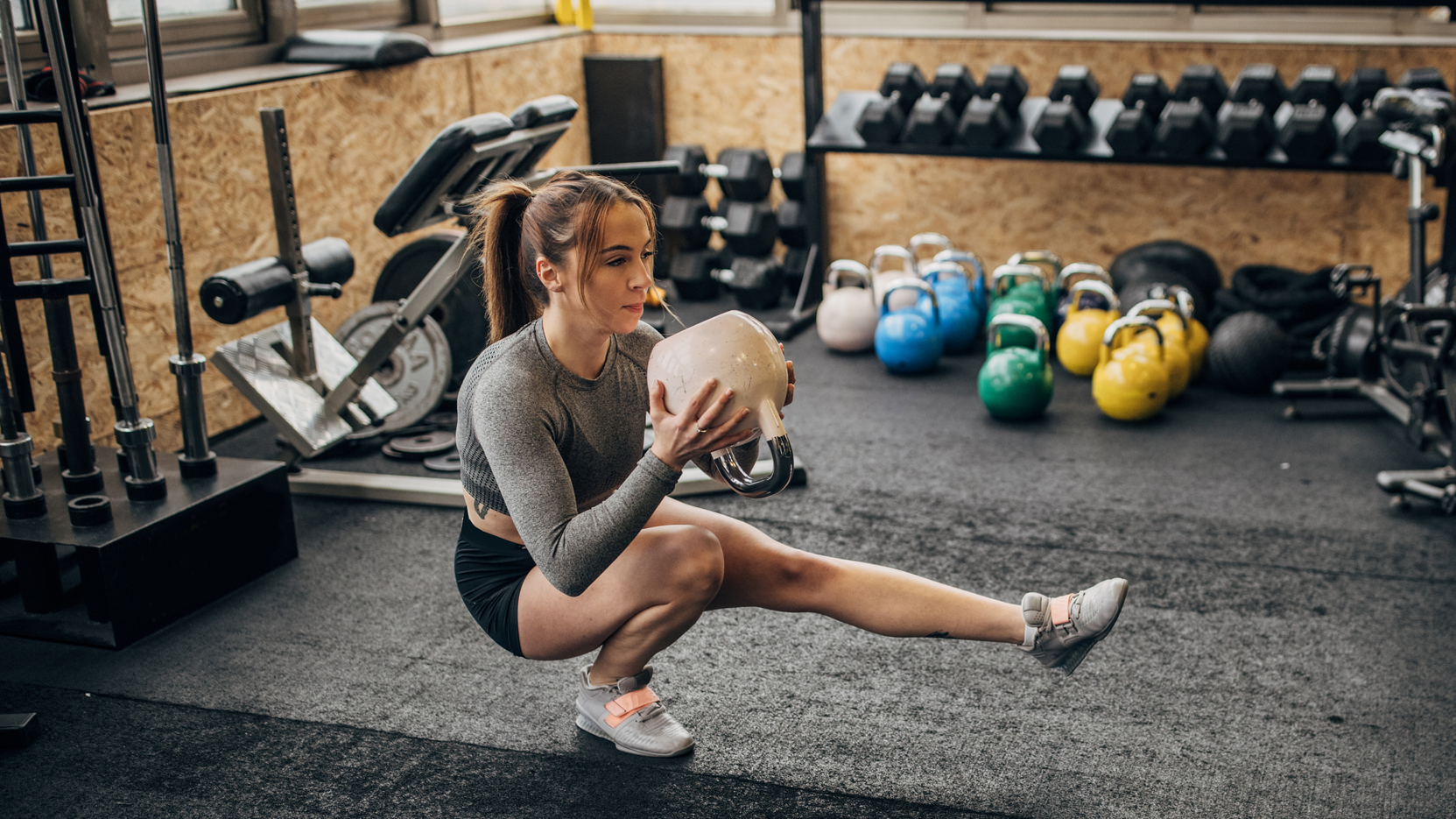
- Start with your feet shoulder-width apart. Bring one foot off the floor and extend it in front of your body. Hold your arms out straight in front of you to help with balance.
- Squat down on one leg, your other leg should continue to hover above the ground.
- Push up through your working leg to come back to standing.
"This is quite an advanced exercise so can be modified by using a chair to squat up from and down to," says Russell. Simply place it behind you so that you can lower it into gently.
She explains that this variation makes you engage the muscles around your ankles, knees and hips, so it's good for stability, while also working your large quad, hamstring and glute muscles.
Russell says it’s important to "focus on maintaining your form throughout the exercise, keeping your back straight, chest up and core engaged. Avoid rounding your back and allowing your knees to cave inwards".
You can increase the number of repetitions and the weight you use as you become stronger and more comfortable with the movements.
Want even more of a challenge? Try this squat workout routine on your next leg day.
Add some load to your squats by investing in one of the best adjustable dumbbells

Kat Storr is a freelance digital journalist with a background in news. She started her career by working at Sky News and has since written for several publications, including Stylist, Metro, HuffPost UK and more. She often covers health and wellbeing topics and written about postnatal mental and physical health, how to exercise when you're hypermobile and tips for coping with sleep deprivation.
